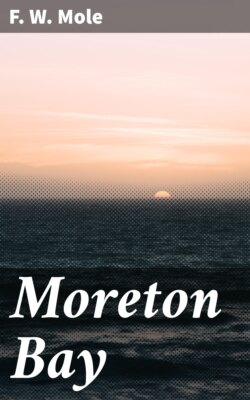Читать книгу Moreton Bay - F. W. Mole - Страница 5
На сайте Литреса книга снята с продажи.
CHAPTER III.
ОглавлениеTable of Contents
The Manor of Grassmere in Devonshire, abutting on Dartmoor, was the seat of the young Earl Belriven, and his demesne is recorded in the Domesday Survey. Before the Norman Conquest of England, Earls of Belriven held an estate in fee in the lands of Grassmere. After the Battle of Hastings, the then Earl of Belriven swore fealty to King William the Conqueror, to whom he surrendered his lands, both freehold and copyhold, and received them back again from the Conqueror.
The copyhold lands of Grassmere belonged to and were parcel of the Manor, but were not freehold. They were merely an estate at the will of the lord of the Manor at whose will they were expressed to be holden.
The Manor was the unit, and the villagers were more or less dependent on their lord. The Manor lands were divided into the lord's demesne or private grounds, the common fields or arable lands, the common pasture, and the waste or common.
At the beginning of the nineteenth century Stephen Worthington was a copyhold tenant of the then Earl Belriven, and he held his copyhold estate under certain customary restrictions. For instance, he could not commit any waste, either voluntary such as the opening up of mines, cutting down timber and pulling down buildings; or permissive, by neglecting to repair; for the land, with all that is on it or under it, belonged to the lord.
The genealogical tree of the present Lord Belriven was an ancient one, its roots striking deep down into the centuries. On its branches had rested and roosted many strange and remarkable human birds of good and evil propensities. Some were lovable, peaceful, and law abiding as was the late Earl, and some as cruel, vindictive, and merciless as the present holder of the title, a sinister bird of prey ever ready to rend with beak and claw.
Perched on the top of his genealogical tree the present earl was known as "The Falcon," and in his veins ran the blood of the infamous Elfrida. Descended of an ancient and noble family, he inherited all of its worst traditions, and few of its best. Though his general conduct, when sober, was not such as to be remarkable, yet his faculties were so impaired by dissipation that when under the influence of drink, he acted with all the wildness, brutality, and irresponsibleness of a madman.
Early in life he married the beautiful, cultured and gentle daughter of Sir Hugh Pendleton, but a more ill-matched pair was not to be found in all England. For a short time after her marriage, his wife perceived nothing which would induce her to repent the step she had taken. Subsequently, however, he behaved towards her with such unwarrantable cruelty that she was compelled to quit his protection and to go back to her father. In those days the Ecclesiastical Courts granted divorce from bed and board, or what is now known as judicial separation. A divorce from the marriage bond was regarded as a blasphemy in the temple of matrimonial purity. But not being without influence, her father induced his saddened daughter to apply to Parliament for redress. An Act was passed under which the gentle Countess was allowed maintenance to be raised out of her husband's estate. Trustees were appointed and one John Gatcombe, bred up in the late Earl's service and distinguished for the regular manner in which he kept his accounts, and his fidelity as a steward, was appointed receiver of the rents for the use of the Countess.
The young earl, on the departure of his wife, took unto himself a mistress, one Julia Darnley, of Spanish descent, a furiously jealous and imperial beauty, with whom he lived openly at the Manor, and by whom he had two natural daughters. The other occupants of the Manor were five men servants and three maids. John Gatcombe lived at Millbrook, a tenancy which he held under his lordship. It was his custom, occasionally, to visit his master to settle the estate accounts; but his lordship gradually conceived a dislike for him, grounded upon the prejudice raised in his mind by the fact of his being the receiver of the Countess's portion. The Earl also charged him with having conspired with the trustees to prevent his receiving a tin contract in Cornwall. Henceforth, he spoke of John Gatcombe in opprobrious terms, and became obsessed with the notion that he was conspiring with his enemies to injure him. In unprintable language he called him a villain, and gave him notice to quit the farm which he held. This he refused to do, as the trustees, under the Act of Separation, had given him a lease of it.
Baffled, the dissolute and imaginative earl became ungovernable in his fury and he meditated a cruel revenge; but whatever shape it had assumed in his debased mind, it was side-tracked for the time being by startling events which followed fast one upon the other. Then his desire for vengeance, with the centrifugal force of his depravity, flew off at a tangent, as a more diabolical scheme became hatched in his malevolent brain or as the moving finger of fate directed.
